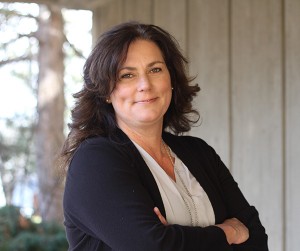Stephanie Smith’s research looks at how consumer food handling trends impact the general public.
For her work, WSU’s Consumer Food Safety Specialist and assistant professor won first place from the Program Excellence Through Research Award from the Washington Extension Association of Family and Consumer Sciences (WEAFCS).
“It’s always a thrill for your research to be recognized,” said Smith, whose project also received the first-place prize from the National Extension Association of Family and Consumer Sciences in the western region, and placed second nationally.
Over the past few years, Smith and her students traveled to Washington county fairs and farmers’ markets, asking consumers to fill out a paper survey. Her team compiled the responses to look at how consumer food handling trends impact the general public.

“The big part of it was to determine what the state needs to do for consumer food safety education,” Smith said.
One of the key takeaways from the surveys was how heavily people rely on information from the internet.
“Traditionally, WSU Extension has offered in person classes through the county extension office,” she said. “But if people are going to the internet to get information about food preservation or food handling, then we’re not really reaching those people.”
When asked where consumers were getting their food safety information, WSU Extension was at the bottom of consumer choice. “Over half of respondents said internet search or social media. Extension was only one percent higher than text books,” she said.
The survey data shows WSU Extension education needs to shift to a more tech friendly, internet based model.
“Whether it’s through social media or YouTube, we need to identify how to better reach consumers,” Smith said. “We need to do a better job about reaching people with technology.”

When looking at foods that concerned consumers, 80 percent of respondents were concerned about poultry. However, less than 30 percent were concerned with fruits and vegetables, despite multiple recalls in the past year involving produce, and frozen fruit and vegetables.
According to the data, consumers had the idea to wash produce to get rid of pesticides, but weren’t as concerned with the microbiological contaminations present on food.
Smith said the biggest surprise was seeing that respondents were more concerned about pesticide residue than anything else, “including general sanitation and proper food handling.”
“A lot of people think food grown in their garden doesn’t need to be washed, because it’s cleaner,” said Smith. “With regard to microbiological quality, it doesn’t matter where the food is grown – it’s still at risk for contamination.”
Smith used the example of a neighborhood cat using the garden as a litterbox, or birds flying overhead, as examples of why produce should always be washed before consumption.
“We saw that with their food handling behaviors,” she said. “There’s a lot of work that needs to be done in food safety.”
With more information about consumer food habits and her award-winning research, Smith hopes to help WSU Extension bolster efforts to be more visible where people get their information on food handling and sanitation best practices.
“There’s a lot of room for Extension to become a go-to source for food safety information.”